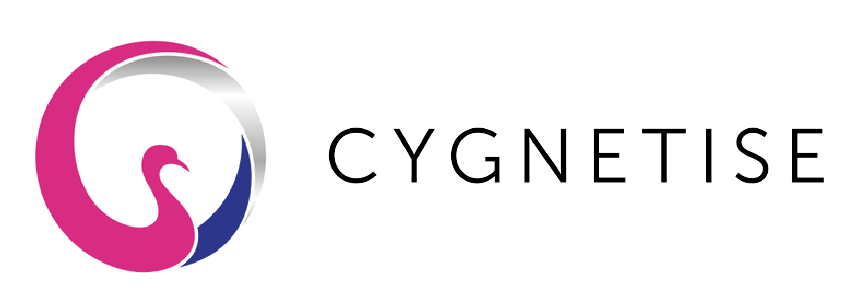Stronger corporate governance regulations present an opportunity which tech can help enable
By Steve Pomfret | CEO at Cygnetise
With enhanced governance protocols and the introduction of personal liability on the table, the importance of good governance has never been greater. Modern solutions can help simplify compliance, improve operations, and deliver a competitive edge for early adopters.
The increased focus in recent years on strengthening governance and internal controls is hardly surprising considering the headline-grabbing nature of some truly catastrophic failures. The fates of household names including Patisserie Valerie, Carillion and BHS, and their staff and shareholders, were the catalyst for a new regulatory body planned for 2023, intended to replace the Financial Reporting Council (FRC) following the 2019 Kingman Review.
The 2021 BEIS White Paper ‘Restoring trust in audit and corporate governance’ proposes a new Audit, Reporting and Governance Authority (ARGA), to strengthen the UK’s internal controls framework and ensure that investors, financial markets, and all those who depend on the largest companies in the UK can continue to rely on the information they publish.
The review into the FRC recommended learning lessons from the US Sarbanes-Oxley (SOX) regime, which placed enhanced reporting obligations on public company boards, management, and public accounting firms. While the White Paper stopped short of proposing criminal penalties, as with SOX, under some of the proposed powers, directors of public companies, large AIM-listed and large private companies could be personally liable for financial or audit failings and subject to fines and bans.
New annual statements they would have to sign would cover subjects such as steps to detect fraud, adequacy of internal controls, and capital maintenance and dividend decisions. Such personal accountability would serve to sharpen the focus of minds on the material accuracy of financial statements and the effectiveness of controls. It is notable that since SOX was introduced in the US, the number of corporate failures has been lower.
“Robust controls and new technologies also bring many benefits and present an opportunity.”
To ensure strong controls, a growing number of companies have already been adopting tech solutions to aid compliance and prevent fraud. With more stringent requirements and personal liability proposed under ARGA, we are likely to see an increase in the use of such technologies. While poor risk management and weak internal controls contribute to the erosion of trust, and company failures in the worst case, at the same time, robust controls and new technologies also bring many benefits and present an opportunity.
Governance quality is an indicator of corporate effectiveness and strong corporate governance helps companies generate value over the long term so is key to successful investments. Reputational and regulatory risk is already a serious board priority and additionally, investors are demanding greater transparency in ESG and CSR effectiveness outcomes. The onset of the pandemic and the shift to remote working also made practices more digital and presented the need for additional controls to be put in place. It is now clear that these practices will remain, even with a return to the office, so an even greater number of effective controls are required.
What is Authorised Signatory Management?
Find out in our latest special report where we discuss the fundamentals of Authorised Signatory Management. Download
The balance between operational efficiency and control used to be reactive and swing between the two but with standards getting higher, prioritising both is essential. Technology is helping enable this balance and early adopters of solutions that support compliance and boost efficiency can enjoy a competitive edge.
“Blockchain has been a much-hyped technology that is now providing truly effective real-world applications beyond crypto.”
The range of actions and responsibilities undertaken by directors and officers is considerable. For directors of Public Interest Entities, who would be personally liable for certifying reports under ARGA covering decisions and actions taken far below them in a company’s organisational structure, technologies can help increase oversight and transparency and deliver a clear audit trail. From AML solutions to those focused on more mundane yet vital operations, there is a range of solutions available to help ensure adequate controls are in place, that they can easily be assessed, and the results clearly demonstrated and reported.
They can not only prevent, detect, and mitigate issues such as fraud, money laundering, and human error. Their adoption presents an opportunity to realise considerable efficiency gains. Authorised Signatory Management is a prime example of an essential process for which new technologies can significantly reduce risk, improve efficiency, and reduce the burden of realising and maintaining good governance.
Blockchain has been a much-hyped technology that is now providing truly effective real-world applications beyond crypto. The utilisation of blockchain in the Cygnetise solution, for example, allows instant and tamper-proof data changes across multiple registers, real-time sharing of these lists, and an immutable audit trail that also cuts costs and can save over 90% of the time spent on manual tasks.
The strengthened governance and enforcement measures proposed for 2023 offer an opportunity not only to improve governance protocols and raise standards. They can also be a driver of tech adoption that will pay operational-efficiency and cost-cutting dividends, reduce the burden of compliance and reporting, aid preparedness for the prevalence of ESG-related items in the FCA’s latest Regulatory Initiatives Grid, and help boost companies’ reputational capital. Keeping ahead of the curve for 2023 can bring many wider benefits.


